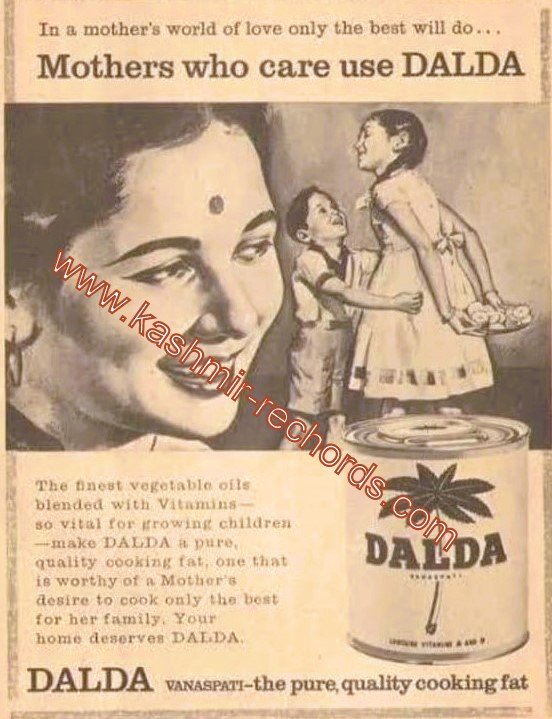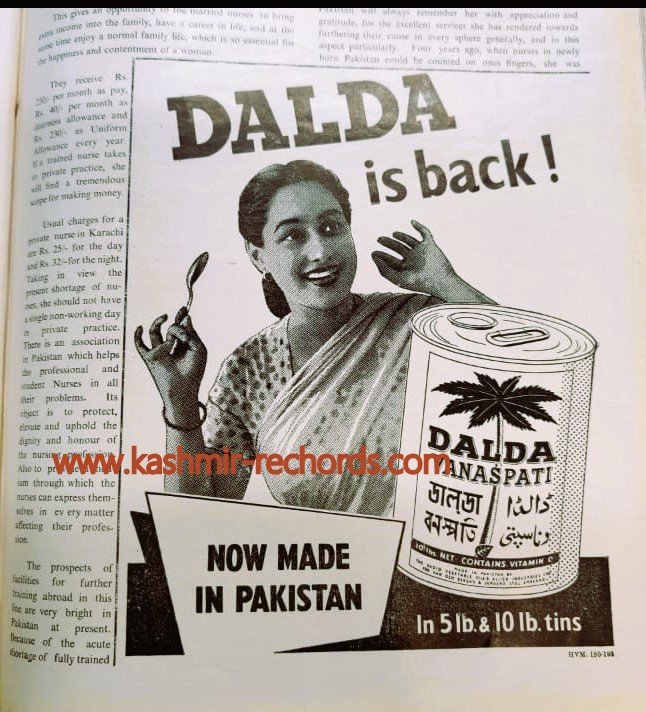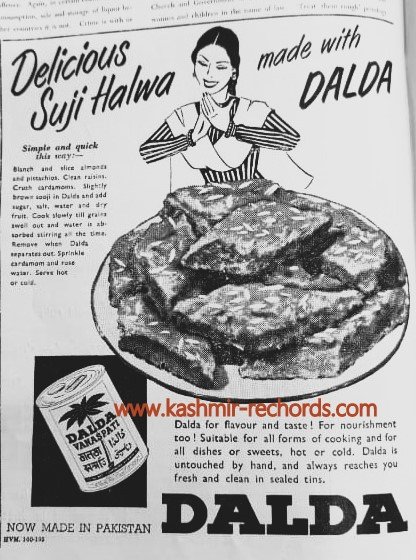(Kashmir Rechords Exclusive)
In the chaotic and tumultuous days of 1947, as the subcontinent was torn apart by the partition, the fate of countless lives and businesses hung in the balance. Among the many concerns of the common man, one simple question echoed through the hearts of millions: what would become of Dalda, the beloved Vanaspati that had become an indispensable part of their daily lives?
Dalda: A Household Name in Pre-Partition India
For the people of Punjab, a region that was brutally divided between India and Pakistan, the attachment to Dalda was more than just culinary. Introduced a decade earlier in 1937, Dalda had swiftly become a household name across the subcontinent, providing an affordable and reliable alternative to Desi Ghee. For many, especially those in Punjab, Dalda was the taste of home, a comforting constant in an era of uncertainty.

The story of Dalda begins in the 1930s when the Dutch company Dada & Co. started importing Vanaspati, a vegetable shortening created to replicate the taste and texture of desi ghee. During that era, desi ghee, made from cow’s milk, was a luxury item that many Indian households could only afford on special occasions. Recognizing the need for an affordable alternative, England’s Lever Brothers (now Unilever) saw an opportunity to enter the Indian market by producing Vanaspati locally.
From Dada to Dalda
In 1931, Lever Brothers established the Hindustan Vanaspati Manufacturing Company and acquired the rights to produce Dada’s vanaspati in India. However, Lever Brothers insisted on their ownership being reflected in the brand name. To achieve this, they added the letter “L” from “Lever” to “Dada,” creating the brand name “Dalda.” Launched in 1937, Dalda quickly became a household name across India, symbolizing a reliable and affordable alternative to desi ghee.
The Uncertainty of Dalda’s Future in Pakistan
But as the dust settled on the partition, and new borders were drawn, the future of Dalda in Pakistan was uncertain. The major companies that manufactured Dalda products were now on the Indian side of the border, leaving Pakistani consumers without their cherished brand. The longing for Dalda was palpable, and it wasn’t long before the clamor from the public grew too loud to ignore.
A Nation’s Demand Fulfilled
Responding to the persistent demand, the management of Dalda decided to reintroduce the product in Pakistan. With an aggressive advertising campaign that declared “Dalda is now Made in Pakistan,” the brand sought to reassure its loyal customers that their favorite product was still within reach. The beauty of this campaign lay in its inclusivity, with advertisements being crafted in both Urdu and Bengali. This was crucial, as East Pakistan (now Bangladesh) predominantly spoke Bangla, and Pakistan had adopted both Urdu and Bangla as official languages until 1971, when Bangladesh gained independence.

Dalda’s reintroduction in Pakistan was swift, and the brand quickly regained its footing. Managed by local stakeholders, Dalda’s production and marketing were reestablished, ensuring that it remained a staple in Pakistani households. The brand’s strong recognition and loyal customer base from the pre-partition era played a crucial role in its rapid resurgence.

Dalda’s Continued Legacy in India, Pakistan
Meanwhile, in India, Hindustan Lever (now Hindustan Unilever) continued to produce and market Dalda, solidifying its presence in Indian kitchens. Despite the partition, Dalda’s legacy persisted on both sides of the border, a testament to its deep-rooted presence in the culinary traditions of the subcontinent.
The story of Dalda during the partition is not just about a brand—it is about the resilience of a people, determined to hold on to the familiar tastes and traditions that had shaped their lives. Even as they faced the tragedies and upheavals of a divided land, the comforting taste of Dalda remained a unifying force, bridging the gap between past and present, India and Pakistan. Today, Dalda continues to thrive, a symbol of tradition, trust, and the enduring spirit of the subcontinent.